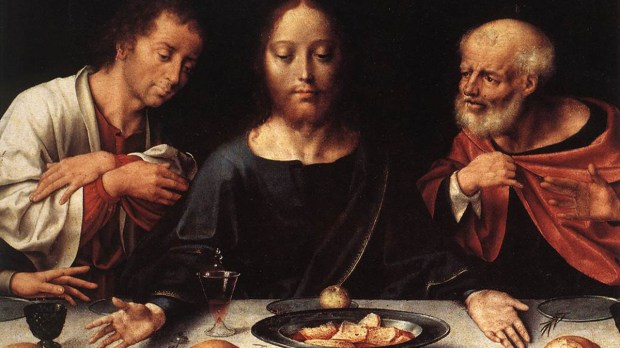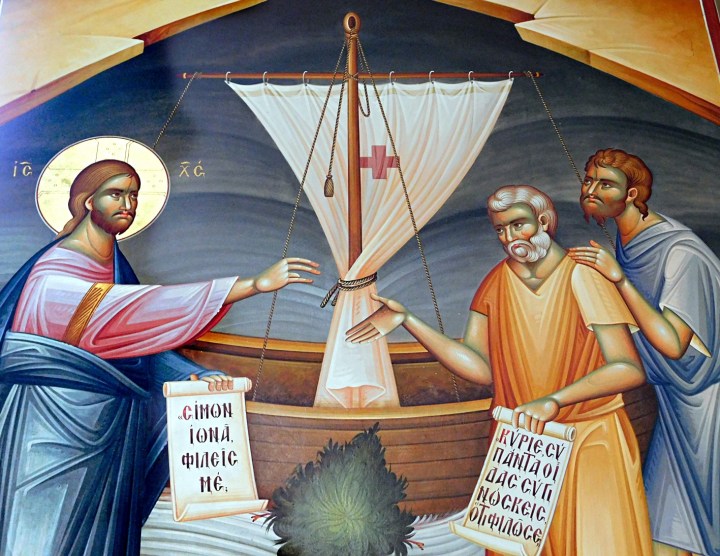The Gospel for this Sunday is John6:55, 60–69
1. Jesus speaks plainly
The words Jesus spoke in the synagogue in Capernaum and that we have heard over the last few Sundays are the key to understanding his relationship with us. This is not a description of the past. The reality Jesus speaks about is happening now, and we are participating in it.
2. Keywords
In the synagogue in Capernaum, Jesus said: “My flesh is true food, and my blood is true drink.”
Jesus shocked the people by how physically close he is to the person who receives him in Holy Communion. In this Gospel passage, the phrase “My Body” in the original Greek could be rendered “My meat” (sarx mou). Moreover, to reinforce the meaning of the word “meat,” Jesus uses the verb “to chew” (trogo) rather than just “to eat” (esthio). Therefore, in the Gospel of John, chapter 6, verse 54, there is the expression: “Whoever eats (literally: chews) my flesh (literally: meat) and drinks my Blood has eternal life.” Jesus uses these words to emphasize his physical presence in the Eucharist.
The second thing that shocked the listeners was when Jesus said that whoever drinks his blood has eternal life. There is a clear prohibition in Scripture against drinking blood, as early as Genesis chapter 9. It was later repeated. Furthermore, in Leviticus, it is written that whoever eats blood will be put to death. Blood could only be offered as a sacrifice in the temple. In this context, it must be emphasized that Jesus’ blood is the fulfillment of all the blood sacrifices that were offered in the temple.
From that moment on, many of his disciples no longer accompanied him. Jesus then said to the Twelve, “Do you also want to leave?” Simon Peter answered him, “Master, to whom shall we go? You have the words of eternal life. We have come to believe and are convinced that you are the Holy One of God.”
Jesus is physically close to us, but he leaves us the choice to be with him or to leave him.
St. John Paul II, in his Message for the IX World Youth Day commenting on these words of the Gospel, wrote: “There are moments and circumstances in which one must make decisive choices that are binding for life. The way to happiness and light does not lead through shortcuts. Your strength is the Lord, who guides you with love and is always ready to welcome you as the prodigal son.”
3. Today
“The measure of love is love without measure,” says the common aphorism.
It is precisely Jesus’ love that so strongly shocks people. His physical closeness in the Eucharist.
In what ways do I try to be physically close to Jesus? How often do I receive Him in Holy Communion? Do I visit Him in church even for a short adoration?



